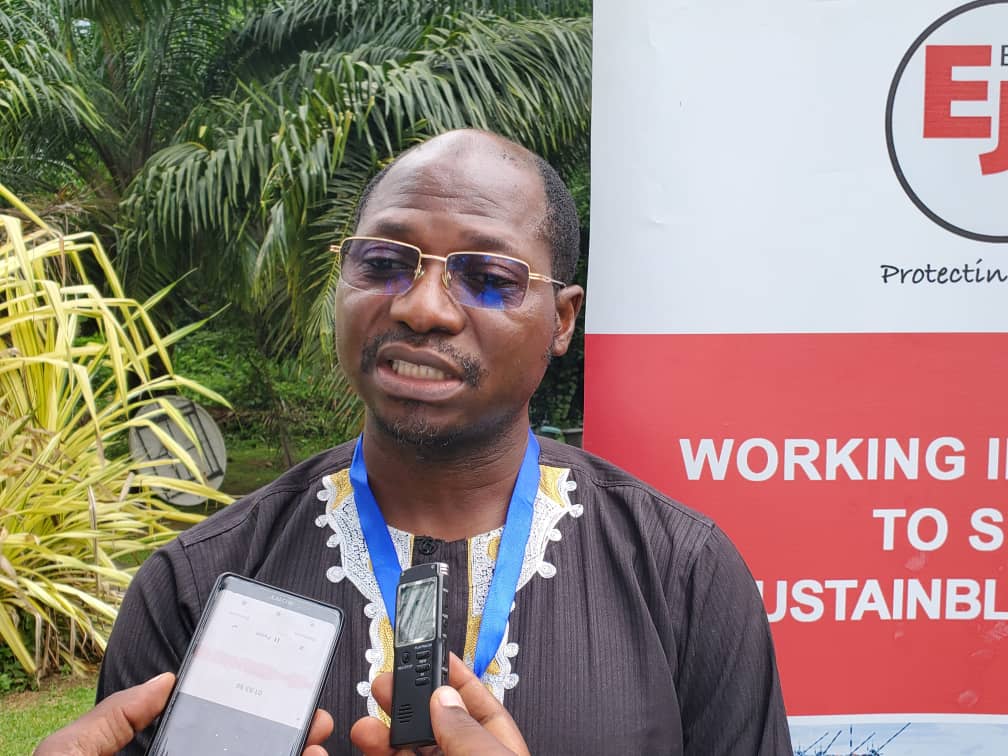AFRIK21: Cameroonian fish products have been banned from entering the European market since January 2023. This is a red card for the status of “non-cooperating country in the fight against illegal, unreported and unregulated fishing (IUU fishing)”, which Cameroon now occupies in the files of the European Commission. How do you feel about your country being given such a status?
Joseph Yepka: First of all, I think it’s important to clarify the situation, given the comments being made about this red card. You have to understand that this red card is simply an alarm bell, concerning some of the country’s weaknesses in controlling fishing by boats flying the Cameroon flag. What is being pointed out is the weakness in controlling our boats outside our waters, in third countries. So, strictly speaking, it’s not the fact that Cameroon is a country that practices IUU fishing or that gives in to it, no, it’s not that. You know, controlling our boats outside our waters requires major technological resources, a network and so on.
Afrik21: What has the Cameroon government done in the meantime to overcome these difficulties in controlling long-distance fishing boats?
Joseph Yepka: Specific, practical measures have been taken. A framework for collaboration is already being put in place, under the aegis of the Prime Minister, between the Ministry of Fisheries and the Ministry of Transport. While the Ministry of Fisheries is responsible for controlling this activity, it is the Ministry of Transport that is responsible for registering the boats, and therefore for issuing the flag. Hence the need for collaboration between these two administrations, to ensure better control of the fishing boats to which we give our flag.
The government’s second response is structural, as it is part of the revision of the law. As you know, Cameroon’s fishing law is currently being revised, and the process is well advanced. And there are a number of innovations contained in this bill, to better manage the issues of controlling our boats and combating IUU fishing.
“Fishing communities are just as guilty of IUU fishing”.
Afrik21: What are the figures for IUU fishing in Cameroon to date?
Joseph Yepka: IUU fishing does not respect the rules. Nor is it declared. And you know, when something isn’t declared, we find it hard to quantify. Even around the world, IUU fishing is difficult to quantify. It’s true that we can quantify the number of boats or fishermen who have been caught IUU fishing, but even then it’s impossible to take into account the traffickers who slip under the radar. The fact remains that IUU fishing is a scourge, because it attacks fish stocks, which are vital for food security. It must be combated at all costs, and that’s where Cameroon finds itself.
Afrik21: What message do you have for the coastal communities, who live mainly off resources, now prey to IUU fishing?
Joseph Yepka: My message is one of responsibility. Because we need to remember that IUU fishing is not carried out by angels, but rather by people, by fishermen. Even community members can be guilty of IUU fishing. So those involved in industrial fishing and even communities need to understand that fisheries resources are a precious asset, a national asset, which must also benefit future generations. Everyone must fish responsibly, respecting Cameroon’s fishing regulations, because that’s what guarantees sustainable management.
The Ministry of Livestock, Fisheries and Animal Industries (MINEPIA) is just one of the players involved in fishing in Cameroon.
If Minepia does its job properly, and the other players don’t do theirs, we’ll get nowhere. And respecting the rules here means respecting net lines, not using prohibited fishing techniques, not using prohibited fishing gear, not fishing in areas where fishing is prohibited, such as breeding grounds and protected marine areas, etc. So this is an appeal to the responsibility of each and every one of us.
Interview by Boris Ngounou
